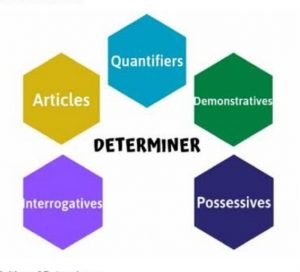
Addition and career/business implication
Also the word “Presently” has two meanings. The first meaning is “Very soon”. This has the symbol “BrE” (British English) against it. The second meaning is “Now” which has the symbol “AmE” (American English) against it. This means it is wrong to use “Presently” to mean “Now” in British English. Rather, we use “At present” or “Currently” in British English. If you tell your British customer or prospect that you “presently” have some needed products in stock, you have lost business because you are ignorantly telling him or her that you will have the products very soon.
Wrong redeployment of meanings
This is another feature of Nigerian English. It is about misinterpreting the original meanings of the existing words of English Language. Examples of words that have their meanings wrongly redeployed in Nigeria are “Do-or-die”, “Tout”, “Dowry”, “Minerals”, etc. “Do-or-die” is a positive idiom that means “Strong determination” (check a dictionary). “Tout” means “Marketer” or “Canvasser” not “Hooligan”. “Dowry” basically refers to the money and other property that a bride gives to the bride-groom not money that a bridegroom pays on the bride as wrongly used in Nigeria.
We wrongly use “Minerals” for “Soft drinks”; “Hot drinks” for “Hard drinks”; “Machine” for “Motorcycle”. We have also wrongly created the word “Send-forth” in place of the correct version “Send-off”; “Drainages” in place of the correct one “Drains”. Most Nigerian speakers of English wrongly say “Send-forth” instead of “Send-off”, probably because the adverbial particle/preposition “off” is considered negative. I wonder why we have not changed jamb “cut-off” mark to “cut-forth” mark!
Similarly we use “Do-or-die” negatively probably because of the negative word “Die”.
Explanation
“Longman Dictionary of Contemporary English” defines “Send-off” as “a party or other occasion when people meet to say ‘goodbye’ to someone who is leaving”. The dictionary thus gives this example, “The department gave Tom a send-off he won’t forget!” In this sense and context, “Send-off” is used as a noun and has a positive meaning. It is different from the negative usage as a verb in the expression, “The referee is likely to send off the player for dangerous tackles”.
It is bad English to say “Don’t throw refuse inside drainages”. The plural word “Drains” is the correct version. “Drainage” refers to “the process by which water or liquid waste is drained from an area”. “Drainage” is also an uncountable noun and cannot be used in the plural form. “Drain” refers to a pipe or any channel that carries away dirty water or liquid waste. See this example from “Oxford Advanced Learner’s Dictionary”, International Student’s Edition: “We had to call in the plumber to unblock the drain.”
Justification of wrong connotation
Proponents of Nigerian English are always quick to justify errors of wrong redeployment of meanings by claiming they are connotative meanings. Connotative meanings refer to meanings that are not dictionary meanings or denotative meanings. Usage of words like “Do-or-Die”, “Tout”, “Dowry”, etc., differently from the dictionary meanings does not count for standard connotative meanings but errors of wrong redeployment of meanings arising out of ignorance. We cannot hide under wrong connotative meanings to continue to justify errors in Nigeria.
Some justify these errors by saying it is communication that matters. This does not mean we should now sacrifice linguistic correctness on the altar of communication. It is like saying as a man, if your little child calls you “Mummy”, you should not correct him or her but just continue to answer so long you know it is you the father that he or she is referring to.
Reinforcement
Many Nigerians even argue that “Do-or-die”, a positive idiom that correctly means “Strong determination”, has assumed a negative connotation in Nigeria since former President Olusegun Obasanjo used it during electioneering. I want to say it was (and is) because many Nigerians did not understand the actual meaning before Obasanjo used it. After all, a northern governor (name withheld) mistook the noun phrase “Mineral resources” for “Soft drinks” in the 1980s in Nigeria. Why has the phrase “Mineral resources” not had the connotative meaning of “Soft drinks” in Nigeria since then? It is simply because we understood (and understand) it was (and is) an error.
Standard connotative meanings
Standard connotative meanings are based on pure peculiar cultural experiences that are not covered in the dictionary, not errors of wrong redeployment of meanings like “Do-or-die”, “Tout”, “Dowry”, “Minerals”, etc., common in Nigeria. For instance, a word like “Woman” culturally has different connotative meanings peculiar to different cultures in Nigeria, which are not covered in the dictionary. In a war context, for instance, if the word “Woman” is used for a man, it has the connotative meaning of cowardice. If the word “Woman” is used for a man in a cooking context, it has connotative meaning of commendation in our cultures in Nigeria. If drinking of alcohol is involved and you refer to a man as a woman, then connotatively, you are saying he lacks capacity for alcohol intake or is easily intoxicated. These are standard and acceptable connotative meanings. We should stop committing blunders and claiming wrong connotative meanings.
Overgeneralisation of rules of English
Overgeneralisation of rules of English is another feature of Nigerian English. This is making us to commit errors daily. For instance, because the verb “Realise” has the noun “Realisation”, we often overgeneralise the rule by wrongly thinking the noun from the verb “Vandalise” is “Vandalisation” instead of the correct noun “Vandalism”. Also because we have the idiomatic expression “The best/worst is yet to come”, we overgeneralise this idiom when we are using “Yet” with “To”-infinitive verbs in other situations. We wrongly say “I am yet to go there” instead of “I have yet to go there”.
We also say “She is yet to go there” instead of “She has yet to go there”. Longman Dictionary of Contemporary English illustrates thus, “I have yet to hear Ray’s version of what happened” and “The bank has yet to respond to our letter”. Note that when a main verb like “Hear” or “Respond” is not involved, it is not used this way. So it is correct to say “He is not yet around”, because “Around” is not a verb. (To be continued)
GOKE ILESANMI, Fellow of the Institute of Management Consultants of Nigeria and International Certified Management Consultant is Managing Consultant/CEO of Gokmar Communication Consulting, International Platinum Columnist, Professional Public Speaker/MC, Communication Specialist, Motivational Speaker and Career Management Coach. He is also a Book Reviewer, Biographer and Editorial Consultant.
Email: gokeiles2010@gmail.com





















